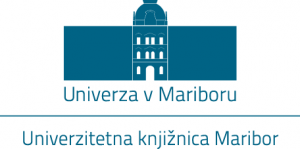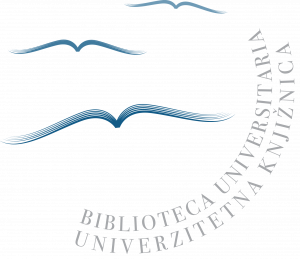Centralna tehniška knjižnica Univerze v Ljubljani v sodelovanju s Centralno medicinsko knjižnico Medicinske fakultete Univerze v Ljubljani ter v sodelovanju s kompetenčnim centrom Odprta knjižnica prireja strokovno srečanje “Pogled na odprto znanost 2020”
SKUPNOSTNA ZNANOST: MOST MED RAZISKOVALCI IN ŠIRŠO SKUPNOSTJO
10.11.2020 ob 10.00
Twitter: #os20lju
Skupnostna znanost: most med raziskovalci in širšo skupnostjo
Temeljno poslanstvo skupnostne znanosti je deljenje znanja. Vključevanje laičnih raziskovalcev v raziskovalne projekte skupnostne znanosti lahko predstavlja most med lokalno skupnostjo in raziskovalnimi organizacijami. Seznanjanje s konkretnimi izkušnjami služi profesionalnim raziskovalcem za preverjanje teoretskih postavk in kot vir novih idej na njihovih področjih delovanja. In nenazadnje, skupnostna znanost omogoča razumevanje znanstvenega dela ter enostavnejšo aplikacijo rezultatov tega dela v življenje širše skupnosti.
Visokošolske knjižnice imajo pomembno vlogo pri delovanju skupnostne znanosti. S svojim delovanjem spodbujajo povezovanje med raziskovalci in širšo skupnostjo ter s tem lahko postajajo nekakšen inkubator projektov skupnostne znanosti.
Citizen Science: the bridge between researchers and broader community
The mission of citizen science is knowledge sharing. Involving non-professional researchers in citizen science research projects can be a bridge between the local community and research organizations. Presented concrete experiences serve professional researchers to verify theoretical bases and as a source of new ideas in their fields of activity. Last but not least, citizen science makes it easier to understand scientific work and to apply the results of this work to the life of the wider community.
Higher education libraries play an important role in citizen science. Through their activities, they promote networking between researchers and the wider community, and thus can become a kind of an incubator for citizen science projects.
Zakaj bi se udeležili srečanja? / Reasons to attend
Strokovno srečanje bo obravnavalo pomembno tematiko vključevanja širše skupnosti v projekte skupnostne znanosti. Namenjeno je najširšemu krogu uporabnikov od raziskovalcev, knjižničarjev pa do vseh, ki vas zanima raziskovalno delo.
Imeli boste priložnost spoznati, kako se z naštetimi problemi spopadajo v tujini, s kakšnimi izzivi se srečujejo in kakšne so njihove rešitve.
Svoje ideje, izkušnje ter pričakovanja boste lahko delili z izkušenimi predavatelji iz Slovenije in iz tujine ter z drugimi udeleženci srečanja.
V razpravi ob koncu srečanja boste lahko tudi sami preko sli.do kode #OS1110 postavljali vprašanja za sodelujoče in prispevali svoja stališča glede obravnavane tematike.
Program / Programme
| 10:05 – 10:30 | The Internet is plagued with Trackers Huma Shah |
Presentation |
| 10:30 – 10:55 | The power of many – Citizen Science at the University of Southern Denmark Thomas Kaarstat & Anne Kathrine Overgaard |
Presentation |
| 11:00 – 11:20 | Anyone can Participate Črtomir Podlipnik & Marko Jukić |
Presentation |
| 11:20 – 11:45 | BESPOC – A Prototype for Citizen Science Single Point of Contact at Universities Tiberius Ignat |
Presentation |
| 11:45 – 12:40 | Razprava / Panel (moderator Miro Pušnik) |
Predavatelji in predstavitve / Presentations and speakers
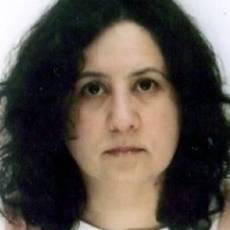
Huma Shah
Coventry University
Dr. Huma Shah gained her PhD in ‘Deception-detection and machine intelligence in Practical Turing tests’ from Reading University in 2011. From 2012 to 2014 she worked as research fellow on the EU FP7 funded ‘RoboLaw’ project (http://www.robolaw.eu/). Since 2014 she has been with Coventry University researching and teaching AI trust and AI ethics. She is Director of Science (Co-Investigator) leading an eleven-partner international team on an EU Horizon2020 research and innovation project: CSI-COP. Huma is co-author of ‘Turing’s Imitation Game: Conversations with the Unknown’, published by Cambridge University Press in September 2016: http://www.cambridgeblog.org/2016/10/turings-imitation-game-a-qa-with-co-author-huma-shah/
The Internet is plagued with Trackers
Article 1 of the EU Charter of Fundamental Rights states that “Human dignity is inviolable. It must be respected and protected”. Article 12 of the 1948 Universal Declaration of Human Rights includes this statement: “No one shall be subjected to arbitrary interference with his privacy … [or] correspondence.” In addition, the 2018 general data protection regulation (GDPR): “sets a high standard for consent” (ICO). This informed consent entails “offering individuals real choice and control” and “genuine consent should put individuals in charge, build trust and engagement”. The CSI-COP project will explore compliance of GDPR’s informed consent by leveraging citizen science methodology. With the project team, CSI-COP citizen scientists will investigate the extent to which our online privacy is compromised, and our human dignity is violated through digital tracking across the Internet in websites and in Android Apps.Citizen scientists should be engaged in discussing theirs, their children and their grandchildren’s future and be part of creating opportunities in the forthcoming roboticised landscape of work and leisure.
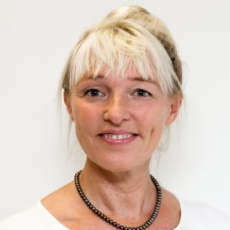
Anne Kathrine Overgaard
Southern University of Denmark
Anne Kathrine Overgaard is Head of External projects at the Faculty of Health Sciences, University of Southern Denmark (USD). Together with Thomas Kaarsted she co-founded in 2017 the USD Citizen Science Network.
She is an Citizen Science advocate and has been project manager for a long range of Citizen Science projects especially within Health Sciences. She is also project manager for the ongoing work for the UN SDG’s at the Faculty of Health Sciences.

Thomas Kaarstet
Southern University of Denmark
Thomas Kaarsted is Deputy Library Director at the University of Southern Denmark. Together with Anne Kathrine Overgaard he co-founded in 2017 the USD Citizen Science Network. He is an Open Science and Citizen Science advocate and has been project manager for a long range for Citizen Science projects. He is co-chair of the LIBER Citizen Science Working Group. In 2020 he was Library Fellow at the University College London with a focus on designing a Citizen Science strategy.
The power of many – Citizen Science at the University of Southern Denmark (SDU)
This presentation maps out the approach towards Citizen Science at SDU. First, it lays of the organization and governance of the SDU Citizen Science Network and our mission statement including the strong connection to the United Nations Sustainability Goals.
Second, it briefly makes the connection to central taxonomies with in Citizen Science in order define our approach.
Third, the presentation presents out a number of cases (Citizen Science projects) from SDU. From narrative medicine to End-Of-Life sustainability, from science communication to marine life and lakes. And last, Citizen Science at SDU has clear directions towards partnerships. We lay out a matrix for discussion on how to engage in a dialogue with researchers and societal actors.

Črtomir Podlipnik
University of Ljubljana
Dr. Črtomir Podlipnik obtaineded his PhD in the field of theoretical chemistry at the University of Ljubljana. Afterwards, he joined the group of Prof. Anna Bernardi (University of Milan, Italy), where he was involved in the designing of cholera toxin inhibitors. Currently, he is working as an assistant professor at the Faculty of Chemistry and Chemical Technology, University of Ljubljana.
His research interest and focus is on exploring relevant biomolecular systems, and with his valuable comprehensive knowledge in the field he is actively involved in a number of projects, including ebola research.
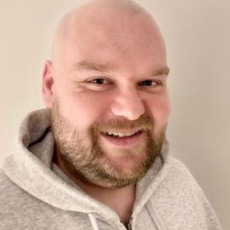
Marko Jukić
University of Maribor, University of Primorska, Intellimol
Assistant Professor in the field of pharmaceutical chemistry, working at the Faculty of Chemistry and Chemical Technology, University of Maribor. Founder of bio-information company IntelliMol. He is involved in the design of new active substances, bioinformatics and the development of computer tools for the design of new drugs.
Anyone can participate
As the SARS-CoV-2 virus has become a significant problem threatening the existence of humankind, scientists immediately began research to clarify the virus’ mode of action. We began to look for compounds that could potentially block the activity of the virus. Our strategy is based on the in-silico approach, virtual screening with molecular docking.
We tried to filter drug candidates from the vast virtual space of drug-like molecules. Even the screening of a relatively small part of the chemical space (in our case, about 10 million compounds) is computationally intensive, which is why we are working on the Citizen Science project – COVID.SI.
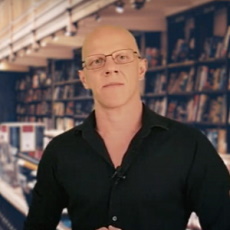
Tiberius Ignat
Scientific Knowledge Services
Tiberius Ignat is the Director of Scientific Knowledge Services. He runs in partnership with UCL Press and LIBER Europe a series of workshops – Focus On Open Science. After being an individual member of LIBER, he became a LIBER Associate.
Tiberius is a member of European Citizen Science Association and Citizen Science Association (US) and on the Scientific Committee for OAI11, the CERN – UNIGE Workshop on Innovations in Scholarly Communication.He has a PhD in Library and Information Science from the University of Bucharest.
BESPOC – A Prototype for Citizen Science Single Point of Contact at Universities
Citizen Science is one of the Open Science pillars as defined by the European Commission’s Open Science Policy Platform. It stays next to Responsible Research Indicators, FAIR Data, Open Access and 4 other important pillars designed to make research more open and reproducible.
The purpose of this presentation is to create a conversation around our prototype for ‘Citizen Science Single Point of Contact’, a concept first introduced in October 2016 by the European League of Research Universities (LERU). Written as a recommendation for institutions, the Single Point of Contact for Citizen Science is suggested to the leadership of universities, to advise scientists and to ensure liaison with national and regional citizen science initiatives.
Scientific Knowledge Services has been prototyping independently such a concept since 2017 when we first mentioned roles for European research libraries in the Citizen Science world. That happened at the LIBER Conference in PATRAS, Greece.
Our prototype is called BESPOC (Broad Engagement in Science – Point of Contact) and it has nine elements. We will present in this contribution the core of each element.
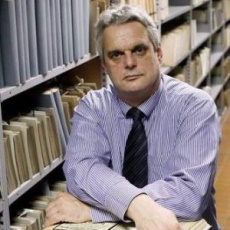
Miro Pušnik
Central Technical Library at the University of Ljubljana
Miro Pušnik became Director of the Central Technical Library at the University of Ljubljana in 2009. He holds BA in Zootechnics and MSc on Scientific and Technical Informatics from the University of Ljubljana. Before his current position, he was Director’s Adviser on digital libraries and electronic resources.
He led a project on setting up and operating the Digital Library of the University of Ljubljana. CTK is the central institution for consortia management and e-content acquisition in Slovenia. Their consortia are the largest in Slovenia, and probably one of the largest also in the region. Miro is the president of the National Council for Libraries of the Republic of Slovenia. He is a member of the COAlition S Leaders Group and a member of the EOSC Rules of Participation Working Group.
Naši partnerji
Spletna stran srečanja je bila ustvarjena v sodelovanju s kompetenčnim centrom Odprta knjižnica

pri katerem sodelujejo:
Vse avtorske pravice prispevkov obdržijo avtorji.

Spletno mesto je objavljeno pod licenco Creative Commons Priznanje avtorstva 4.0 Mednarodna.
Logotipi in druge vsebine, ki ne spadajo pod to licenco, so označeni posebej.






